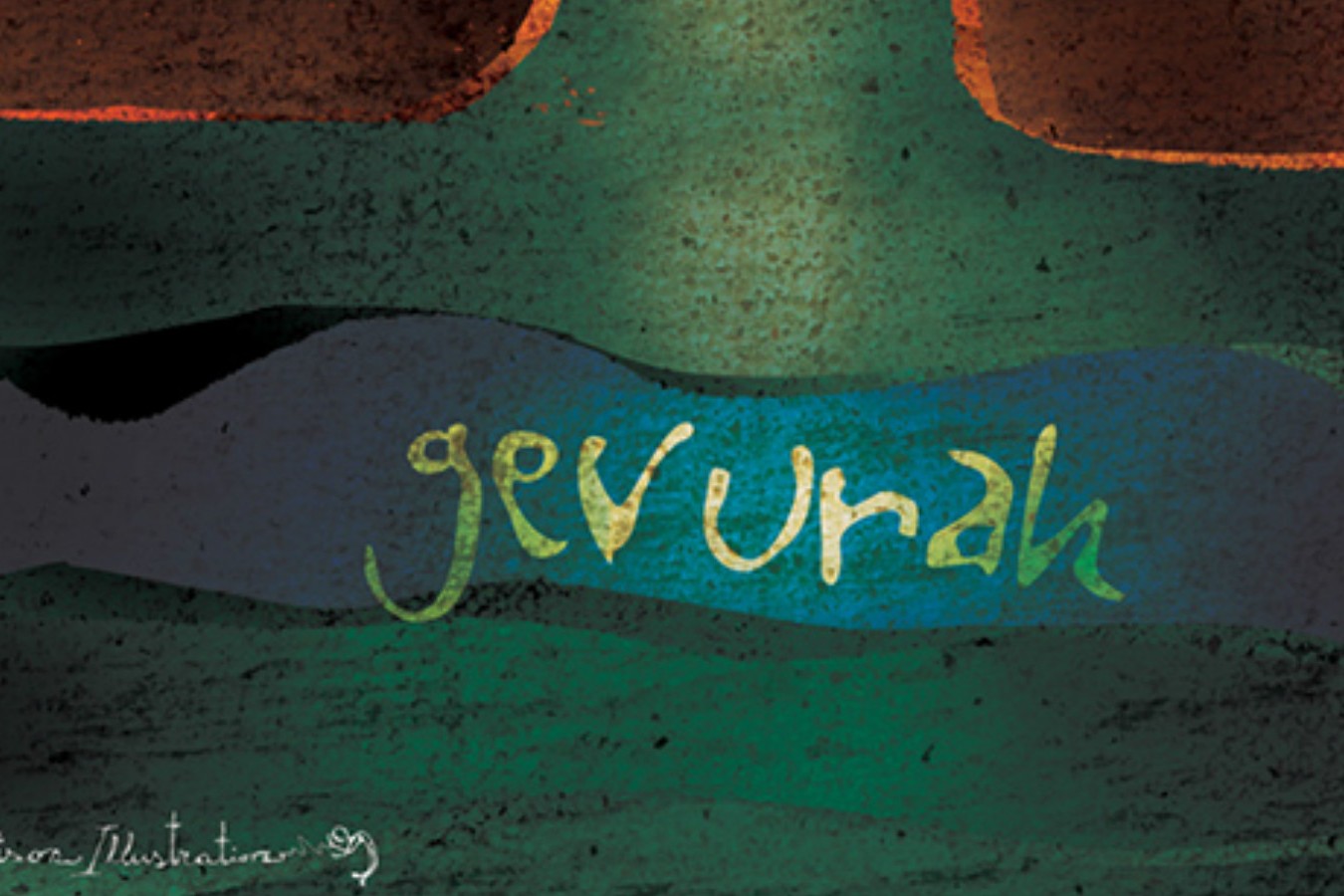I grew up in a Conservative synagogue which, around the time of my bat mitzvah in the 1980s, was limiting women’s participation rather than expanding it. My parents, good feminists that they were, were also part of a small egalitarian prayer community, and it was decided that although I would celebrate my bat mitzvah at our big synagogue in March, I would also chant the Torah portion with our egalitarian community closer to my birthday in November. That Torah portion was Parashat Toldot, and I have carried it with me ever since.
Isaac and Rebecca are married, and Rebecca is barren. So Isaac prays to God on her behalf, and she becomes pregnant with twins. It’s a difficult pregnancy, as the children struggle in the womb. Rabbinic interpreters imagine Esau trying to come out when Rebecca passed places of idol worship, while Jacob tries to come out when she passed places of Torah study. And then, we come to the words that for me, jumped off the scroll:
She said: If so, why do I exist? And she went to inquire of the Eternal. And the Eternal answered her… (Genesis 25:22-23)
The content of God’s reply is significant: God explains that the struggle taking place in her womb will continue in the world, and that the older twin (Esau) will serve the younger (Jacob). This explains a lot of what happens next, and suggests that Rebecca’s act of duplicitousness, in which she tricks her husband into granting Jacob the blessing he intended for Esau, is actually her following the direction that God gave her. But what was stunning to me then, and continues to move me now, is the simple fact of the exchange. Rebecca, at a challenging moment in her life, asks God a question which relates to the very nature of her existence: Why am I here? Why is this happening? Why me? And God replies.
With your help, My Jewish Learning can provide endless opportunities for learning, connection and discovery.
For millennia, interpreters have buffered the directness of this exchange. Rebecca inquired of God, yes, but it must have been through the yeshiva of Shem and Ever, the ancient school of Jewish learning where, the Midrash tells us, Jacob strained to emerge from the womb. Or: she went to ask the prophets (Rashbam). Or: she prayed (Ramban). Or: she went to inquire not of God, but into the nature of God (Kli Yakar). Or, in a move that seems drastic but in fact is the logical conclusion of a patriarchal view that can’t really imagine Rebecca addressing God directly, it is Isaac, not Rebecca, who asks God and is answered (Josephus’ “Antiquities of the Jews”).
Interpretation is an essential tool when we approach an ancient text. And in fact, we do have other instances in the Bible where “inquiring of God” actually means asking a prophet. One could make the case that it’s not at all obvious what it means to inquire of God, and there is great richness in the interpretations that suggest this inquiry takes the form of philosophical musings or prayer. But sometimes, we are so focused on the interpretive meaning that we miss the obvious meaning. And the obvious meaning of this text is that Rebecca approaches God with a question and God answers her.
Even more significant, Rebecca is the first person in the Torah to start a conversation with God. Adam, Eve, Noah – all of them answer God’s questions or reply to God’s commands, but none of them initiate contact. Even Abraham, who famously responds hineini (“here I am!”) to God’s call, does not start the conversation. Abraham challenges God about the destruction of Sodom and Gemorah, but only after God shares the divine plan with him, opening the door to Abraham’s response. It is Rebecca, out of a very embodied and personal struggle, who asks God for an answer and receives one.
And so, it turns out that Parashat Toldot, the Torah portion to which I was redirected after my childhood synagogue limited women’s voices, contains a powerful example of a woman’s voice, a human voice, with the courage to cry out to God and demand a response. Rebecca is worried about her children. She is worried about her own life. She wants to know why she suffers. And she doesn’t take her question to a scholar or a prophet. She doesn’t subsume it into philosophy or prayer. She speaks directly to God. Like so many women after her, she is misinterpreted and misunderstood. But God understands her, and God responds.
Our Torah is bold enough to preserve Rebecca’s conversation with God. May we, created in the divine image, also strive to hear and honor every voice. And may we, like Rebecca, have the courage to open the conversation.
Read this Torah portion, Genesis 25:19 – 28:9 on Sefaria
You May Also Like:
Sign up for our “Guide to Torah Study” email series and we’ll guide you through everything you need to know, from explanations of the major texts to commentaries to learning methods and more.
Subscribe to A Daily Dose of Talmud: Daf Yomi for Everyone — every day, you’ll receive an email that offers an insight from each page of the current tractate of the Talmud. Join us!
About the Author: Rabbi Lisa Grushcow is the senior rabbi of Temple Emanu-El-Beth-Sholom in Montreal. She was ordained by Hebrew Union College and earned a doctorate from Oxford University.



